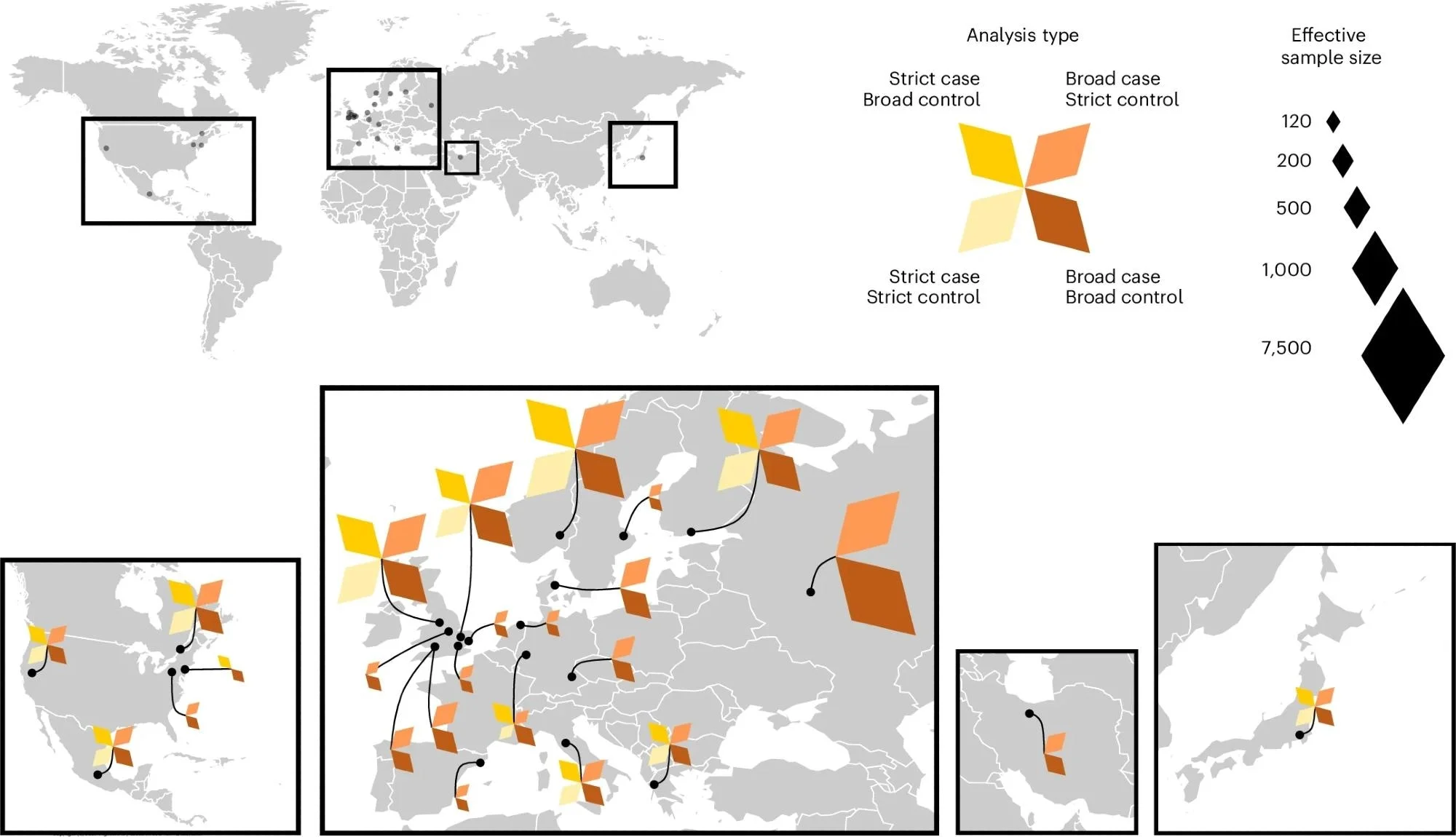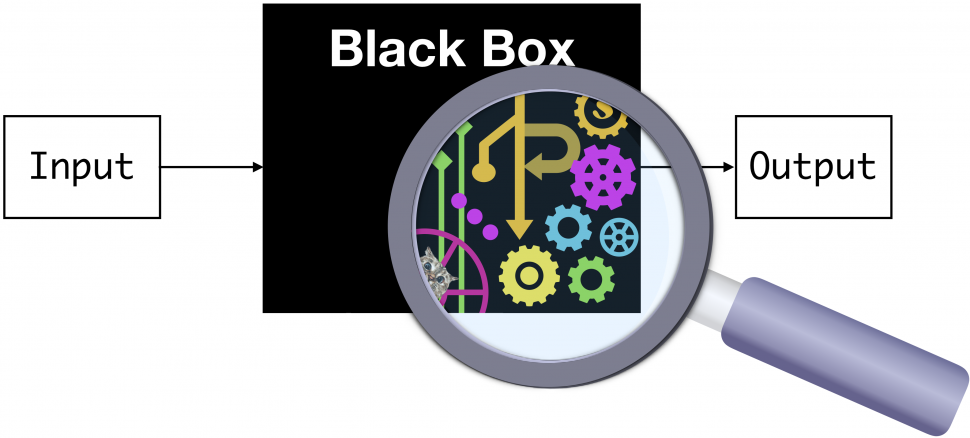- Courses
- GS Full Course 1 Year
- GS Full Course 2 Year
- GS Full Course 3 Year
- GS Full Course Till Selection
- Answer Alpha: Mains 2025 Mentorship
- MEP (Mains Enrichment Programme) Data, Facts
- Essay Target – 150+ Marks
- Online Program
- GS Recorded Course
- Polity
- Geography
- Economy
- Ancient, Medieval and Art & Culture AMAC
- Modern India, Post Independence & World History
- Environment
- Governance
- Science & Technology
- International Relations and Internal Security
- Disaster Management
- Ethics
- NCERT Current Affairs
- Indian Society and Social Issue
- NCERT- Science and Technology
- NCERT - Geography
- NCERT - Ancient History
- NCERT- World History
- NCERT Modern History
- CSAT
- 5 LAYERED ARJUNA Mentorship
- Public Administration Optional
- ABOUT US
- OUR TOPPERS
- TEST SERIES
- FREE STUDY MATERIAL
- VIDEOS
- CONTACT US
FOXP4 Gene and Long COVID
FOXP4 Gene and Long COVID

Why in the News?
- A new international study published in Nature Genetics has found that a gene called FOXP4 might be linked to a higher risk of long COVID 19.
- The study looked at the genetic data of people from different parts of the world.
- It is one of the biggest efforts so far to understand the genetic reasons behind long COVID 19.
What are the Key Highlights?
- About:
- Long COVID means having symptoms like tiredness, breathing problems, or memory issues for weeks or months after COVID-19 infection.
- WHO says long COVID starts within 3 months of infection and lasts for at least 2 months, without another reason.
- Size and Diversity of the Study:
- Data came from 33 research groups in 19 countries.
- In the first phase of the study, researchers examined 6,450 people who were suffering from long COVID.
- They compared these individuals with a control group of over 1 million people who did not have long COVID.
- In the second phase, which was conducted to confirm the findings of the first phase, the researchers analyzed data from an additional 9,500 people with long COVID. They compared this group with nearly 800,000 people who served as controls and did not have long COVID.
- Method:
- The study used a method called GWAS (Genome-Wide Association Study).
- GWAS looks for small changes in DNA that are more common in people with a certain condition.
- The study examined the genes of over 6,400 people who had long COVID and more than 1 million people who did not have it.
What are the Findings of Study?
- The study found a strong connection between long COVID 19 and a gene called FOXP4, located on chromosome 6.
- A specific genetic variant in this region, named rs9367106, increases the risk of long COVID.
- People with the "C" version of this variant are 63% more likely to develop long COVID symptoms.
- This gene variant is found in different amounts across populations, about 1.6% in Europeans and up to 36% in East Asians.
- The FOXP4 gene is active in the lungs, especially in type 2 alveolar cells that help repair lung damage, clear fluid, and fight infections.
- The risk from this gene variant applies even to people who had mild COVID-19, not just severe cases.
- The same gene region has also been linked to lung cancer, suggesting it affects how the lungs respond to illness or injury.
- Researchers used a gene activity database (GTEx) and found that a related variant, rs12660421, is linked to higher FOXP4 activity in the lungs.
- This link remained even after recovery, showing that FOXP4 may have long-term effects on health.
- A special analysis showed a 91% chance that the same genetic signal controls both FOXP4 activity and the risk of long COVID, proving the gene's strong biological role.
What are the Significances of This Study?
- New Genetic Insight into Long COVID: The study identifies a strong link between the FOXP4 gene and long COVID, giving researchers a clear biological target for further investigation.
- Global Relevance with Diverse Data: With data from 33 groups in 19 countries, this is one of the most diverse and large-scale genetic studies on long COVID. It improves global understanding, especially for different ethnic groups.
- Potential for Personalized Medicine: The findings can help develop genetic screening tools to identify individuals at higher risk of long COVID, even among those with mild COVID-19.
- FOXP4’s Role in Lung Health: The gene is active in lung cells that repair damage and fight infections. It has also been linked to lung cancer, suggesting a broader role in respiratory diseases.
- Long-Term Health Implications: Even after recovery from COVID-19, the variant continues to influence lung gene activity, indicating long-term health effects that need monitoring and care.
- Importance for India: The study highlights the underrepresentation of Indian genomes and the need for India-specific research. Findings urge India to enhance post-COVID care and genomic research capabilities.
- Strategic Research Direction: Encourages better integration of genomic, environmental, and clinical data in health planning and policy, particularly for complex, long-term conditions like long COVID.
What Are India’s Genomic Challenges and the Way Forward?
Challenges |
Way Forward |
|
1. Limited awareness and clinical follow-up for long COVID in India. |
1. Strengthen post-COVID care systems and raise public and clinical awareness about long COVID |
|
2. Wide variation in long COVID prevalence across studies. |
2. Conduct standardized, large-scale, and long-term follow-up studies across diverse regions |
|
3. Underrepresentation of South Asians in global genetic studies (GWAS) |
3. Promote inclusion of Indian populations in global genomic research and databases |
|
4. Uncertainty about FOXP4 variant frequency and impact in Indian context |
4. Carry out India-specific GWAS focused on long COVID and related lung conditions. |
|
5. Influence of region-specific risk factors (e.g., air pollution, diabetes) |
5. Integrate environmental, lifestyle, and clinical data with genomic studies for more accurate results |
|
6. Limited disease-focused genomic research in India. |
6. Invest in disease-specific genomic research, particularly on COVID-19 and post-COVID conditions |
|
7. GenomeIndia Project not focused on disease mapping. |
7. Use GenomeIndia’s data as a foundation and expand its scope to include disease-related studies |
Conclusion
This research shows how powerful genetic studies can be when they include people from many backgrounds. Understanding how genes like FOXP4 work can help doctors and scientists find better ways to prevent, diagnose, and treat long COVID. More local studies will help tailor healthcare to the real needs of people in different countries like India.
|
Ensure IAS Mains Question: Q. Recent international research has identified the FOXP4 gene as a key factor linked to long COVID. Discuss the significance of such genetic studies in public health. What are the challenges India faces in genomic research, and how can they be addressed to better prepare for future pandemics? (250 Words) |
|
Ensure IAS Prelims Question: Q. Consider the following statements regarding the recent findings on the FOXP4 gene and its connection to long COVID:
How many of the above statements are correct? (A) Only one Answer: C Explanation:
|
|
Also Read |
|
| FREE NIOS Books | |



